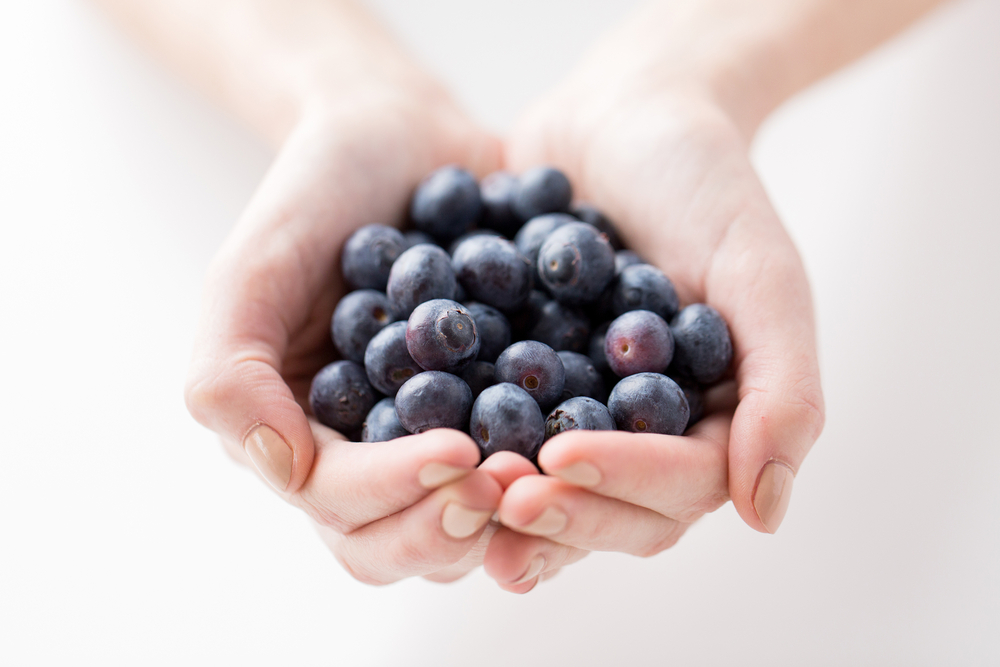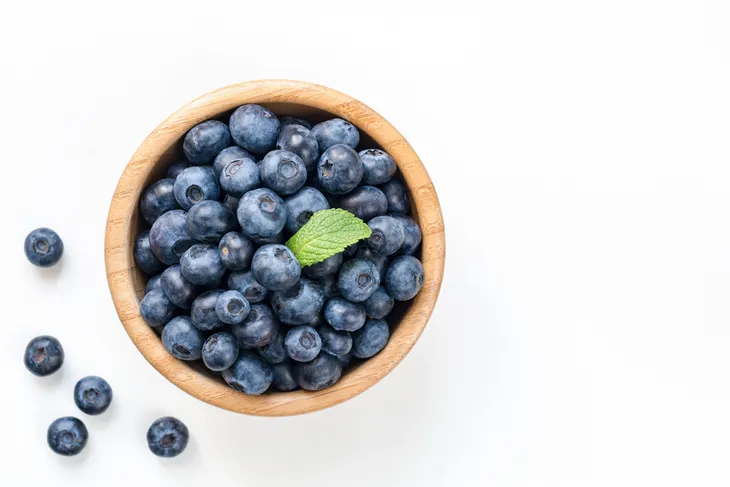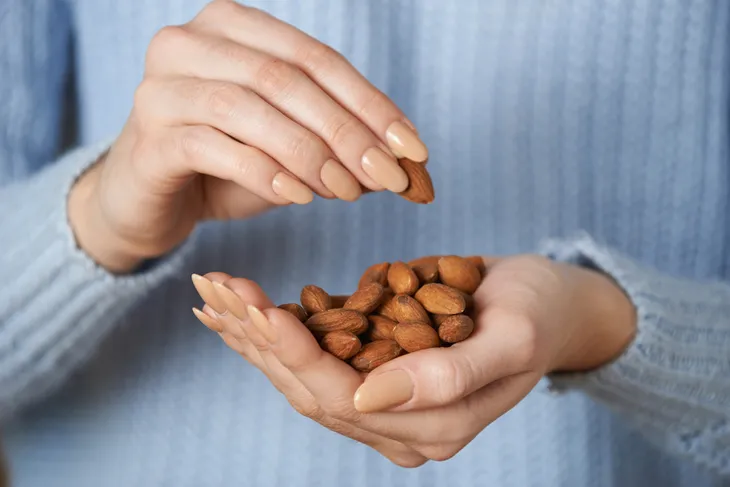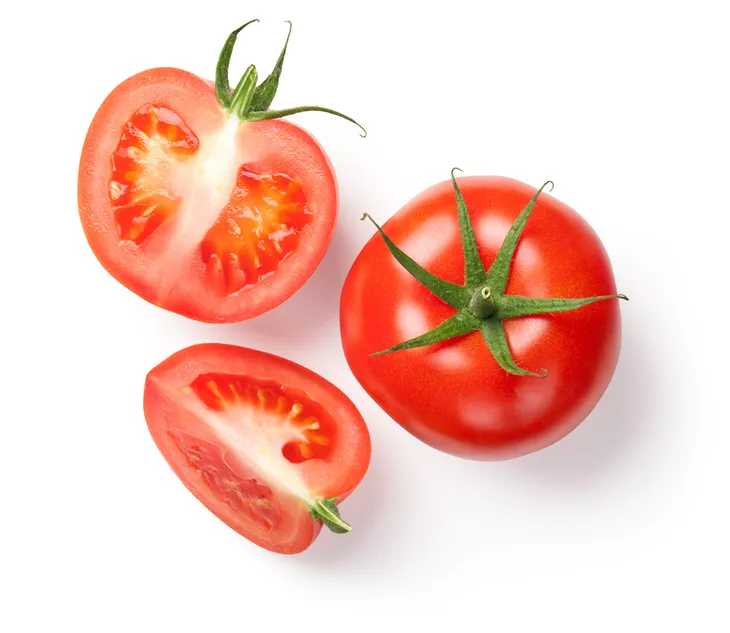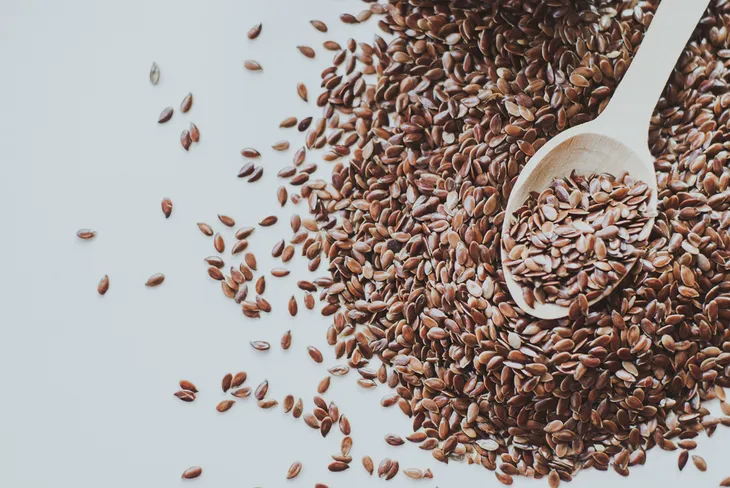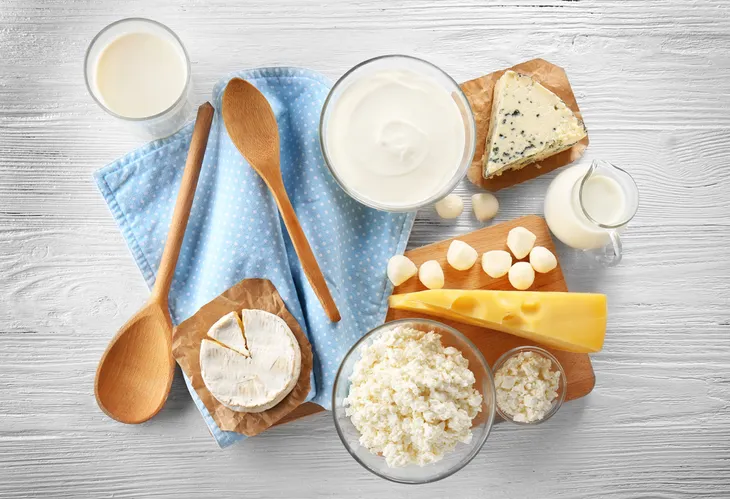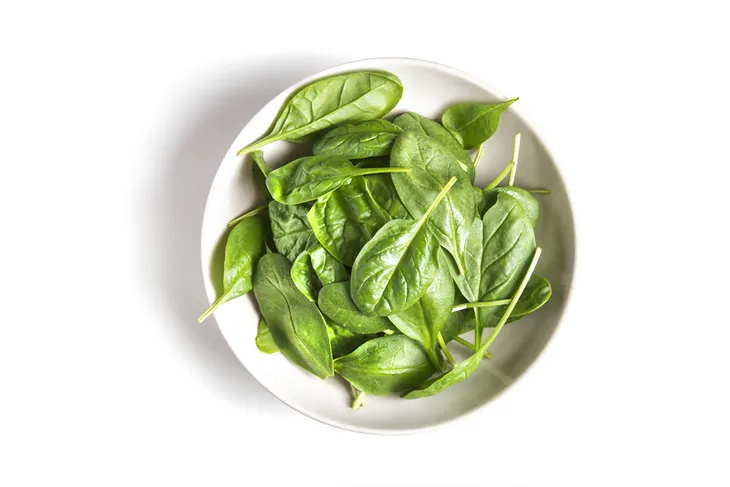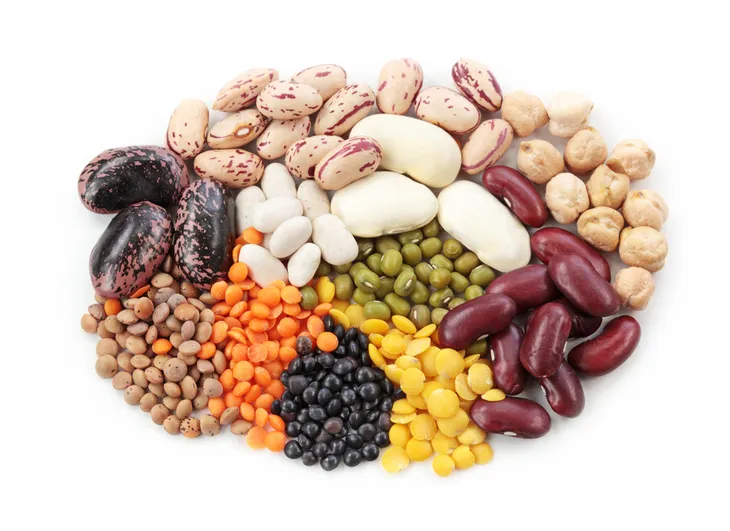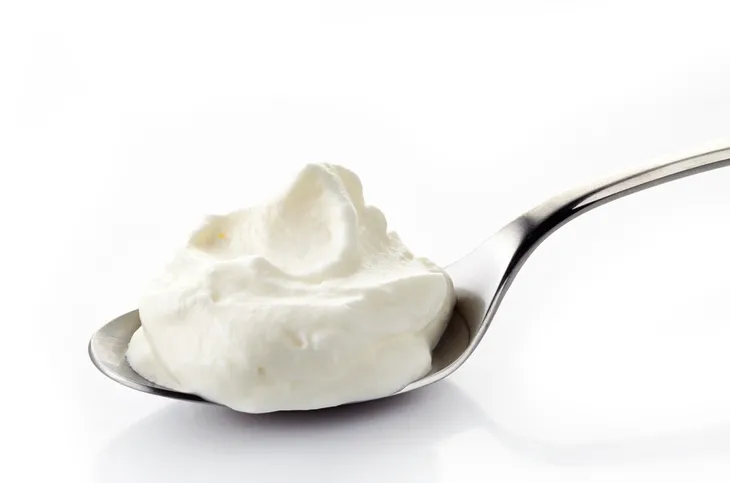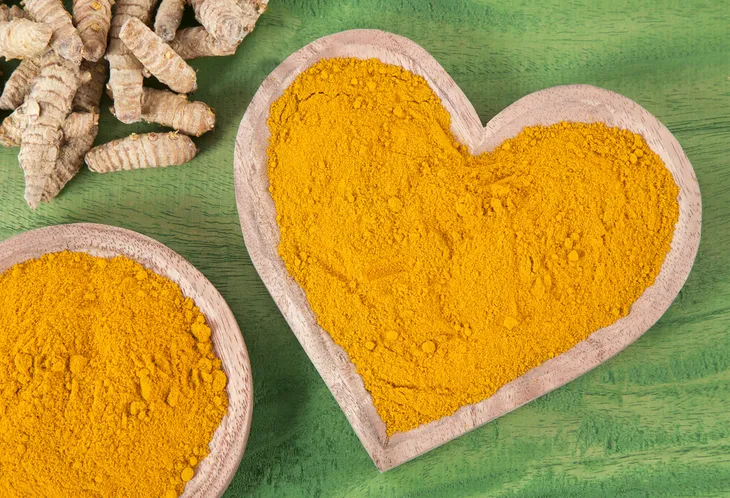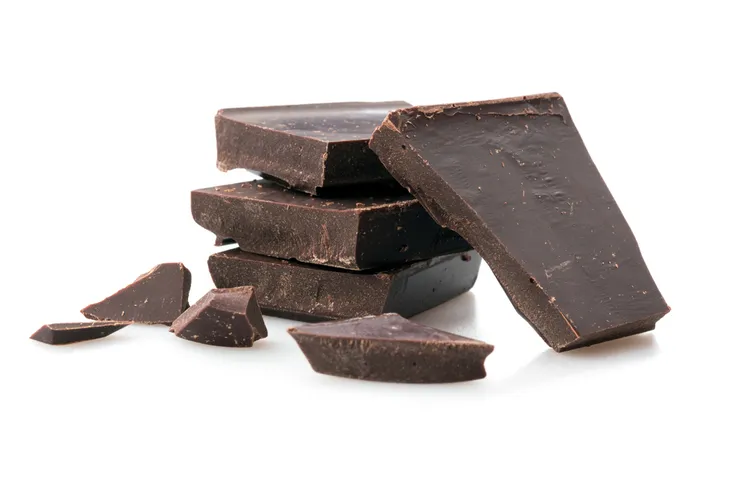No one likes to be told they look older than they actually are. Thankfully, there are many ways to maintain a youthful appearance, starting with a diet rich in nutrients that benefit the skin and other parts of the body. New research shows that a diet rich in vegetables, whole grains, and even seafood can help give one a younger-looking appearance and keep them living longer.
A healthy diet can keep one looking younger by preventing oxidative damage and reducing inflammation. But which foods do this best?
Blueberries
Research shows that foods filled with phytochemicals—like flashy fruits and veggies—can help reduce inflammation and oxidative stress on the human body. This means foods containing phytochemicals can prevent cell and tissue damage, both of which contribute to the aging process.
The good news is that sweet-tasting blueberries are packed with phytochemicals. The trick is to find wild blueberries, which contain more anthocyanins—a type of antioxidant that gives blueberries their unique color—than their domesticated cousin.
Almonds
Researchers believe that a diet high in magnesium plays an important role in slowing the aging process. The good news is that almonds are packed with magnesium, which most adults don’t get enough of in their diets. If you’re not a fan of almonds, you can also get magnesium by eating peanuts and cashews. And if you just can’t stand nuts, spinach also contains magnesium.
Still, there’s no denying the health benefits of almonds. They’re high in healthy fats and protein, which means they’ll keep you going and make you less likely to snack on less healthy foods.
Tomatoes
Tomatoes make a great addition to just about any dish—from garden salads to roast beef sandwiches and pasta sauces. But they’re also really healthy for you, containing an impressive supply of phytochemicals and antioxidants that help fight aging.
If you’re really worried about your appearance, cook your tomatoes, which experts say boosts the fruit’s antioxidant level. However, if you’re more interested in the tomato’s vitamin C content, eat them raw. Either way, this is one healthy food item.
Flaxseed
From the cellular level and beyond, inflammation plays an important part in the aging process. The key is to find foods that can prevent inflammation. Foods high in omega-3 fatty acids have been shown to reduce inflammation. This is why you should get as much flaxseed—which is very high in omega-3s—as you can into your diet.
Specifically, flaxseed found in many whole grain foods, like bread, offers over 8,500-milligrams of omega-3 fatty acids. That’s more than any other seed or nut. The key is to get milled or ground flaxseeds, since whole flaxseeds could pass through your digestive system without breaking down.
Grass-Fed Dairy
We don’t often hear a lot about vitamin K2, which is found in abundance in grass-fed dairy. But vitamin K2 plays an important role in regulating the body’s calcium levels, making in very helpful in slowing the aging process.
The issue is that, as we age, calcium can end up in places where we don’t need it, such as the arteries and soft tissues. Ideally, calcium is strongest where we want it (i.e., the teeth and bones). Vitamin K2 can help make sure calcium gets to the places where it will do the most good, rather than harm.
Spinach
Like the blueberries found higher on this list, spinach is rich in phytochemicals and antioxidants, both of which help reduce inflammation and cellular damage. Spinach is also high in fiber, meaning it can assist in the digestive process and keep us feeling younger.
The trick is to refrigerate spinach immediately. In fact research from Colorado State University says that the amount of antioxidants in spinach can drop by half after just a few days in a room temperature environment. Cooling the spinach helps prevent this breakdown process.
Beans
Beans, beans, the magical fruit…we all know how that little ditty goes. But they’re also incredibly healthy, as legumes pack lots of fiber and protein and are low in carbohydrates. That makes them a great food choice if you’re trying to lose weight, but, because they’re loaded with anti-inflammatory compounds, they’re also great for slowing down the aging process.
For the best results, try red beans, black beans, and pinto beans, which contain the highest amounts of antioxidants.
Wild Salmon
Salmon is packed with healthy protein and omega-3 fatty acids, which have been shown to reduce inflammation and help slow the aging process. Simply put, if you want a cut of meat that will keep you going and have both short- and long-term health benefits, get your hands on some salmon.
Of course, it’s important to keep in mind that not all salmon is created equal. For the best results, seek out wild salmon and avoid the farmed stuff. If you’re not a fan of salmon but want those omega-3s, try sardines or tuna.
Yogurt
Most types of yogurt contain healthy bacteria known as probiotics, which can help in the digestive process and keep inflammation from getting out of control. Because probiotics target inflammation in the gut, they play an important role in regulating the entire system according to WebMD.
After all, a problem in our stomach or intestines can affect many other parts of the body and affect how we age. When shopping for yogurt, try to pick the kinds with lots of fiber and lower sugar content.
Turmeric
Sometimes, just changing the spices we use can make us feel better and younger. Turmeric contains loads of anti-inflammatory and antioxidant compounds that can help the digestive process and slow aging.
Turmeric can be found in most Indian curry dishes, but the spice—which can be found in just about any grocery store—makes an excellent addition to any meal. Just be careful to avoid spilling it, since this yellow spice can stain clothes.
Garlic
Garlic contains the anti-inflammatory and antioxidant compound allicin, which is formed only when the garlic clove is manipulated from its original state. That’s why health experts recommend crushing or mincing garlic before adding it to your favorite foods, like pasta sauce and salsa.
Because of its many age-defying qualities, garlic is often recommended in the fight against conditions like heart disease and hypertension.
Dark Chocolate
Research has shown that cocoa flavanol, a type of antioxidant found in dark chocolate, can actually reverse cognitive aging. The trick is to search for chocolate with a high cocoa content, since it’s that type of chocolate that contains the most anti-inflammatory properties.
Of course, that means avoiding milk chocolate and chocolate that is “Dutch processed” as experts say this alkalizing process can significantly reduce the flavanol content and limit chocolate’s anti-aging qualities. Finally, don’t take this as a nudge to eat chocolate all the time, consider that even dark chocolate contains a great deal of sugar, fat, and calories.
